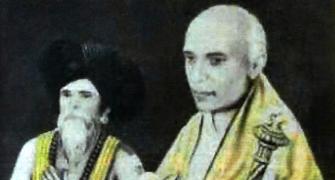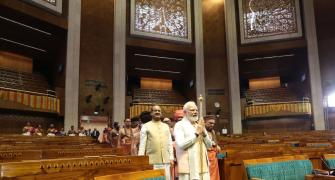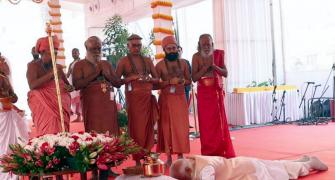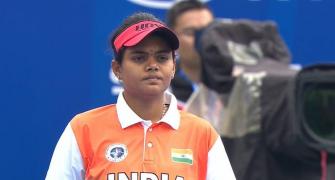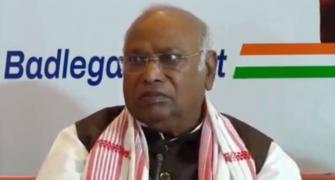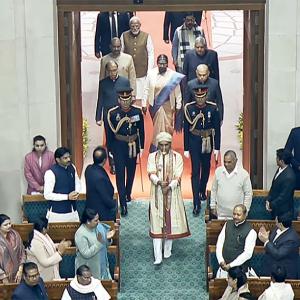The sengol must revert to where it belongs -- behind a glass case and not figure in ceremonies concerning India's democracy, argues Shyam G Menon.
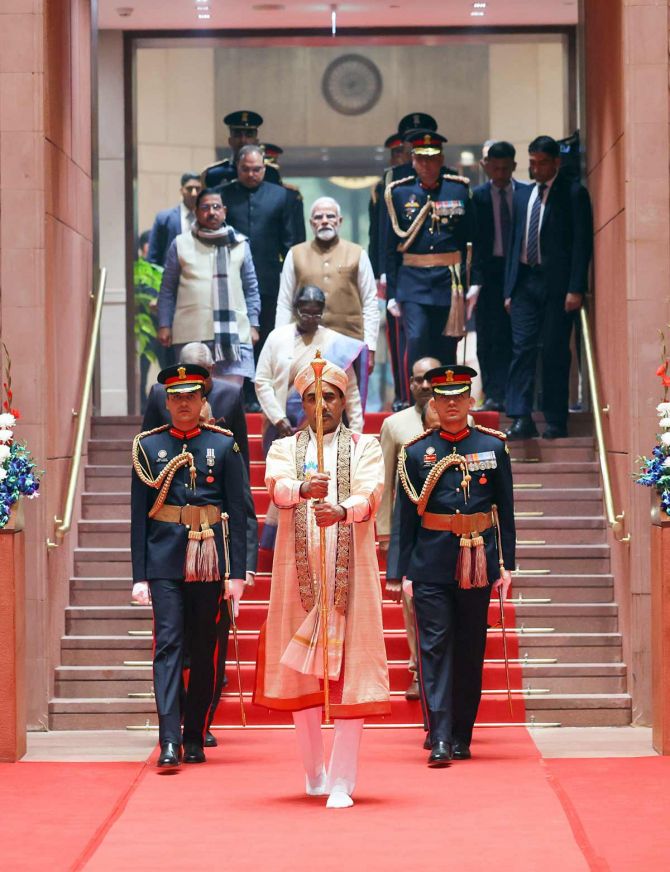
Years ago, an addiction for Tintin or Asterix was common in the urban population.
With its superb illustrations and imaginative character names, Asterix demanded a sophisticated taste.
Tintin appealed to the school goer for its raw sense of adventure. Thanks to an uncle who recognised early on the attraction in Tintin, we commenced a collection at home that started with Flight 714 and over time held in its fold, the entire published list of titles barring one or two.
Given an impressionable age, I took my Tintin seriously and after reading Destination Moon and Explorers on the Moon solemnly presented my design for a moon going-rocket to the elders in the family.
They were very amused to see how easily I had solved the challenges of space travel but knowing the importance of encouragement, made sure not to dampen my capacity for imagination.
Thus, it was from Tintin and the book King Ottokar's Scepter that I first learnt what a scepter is.
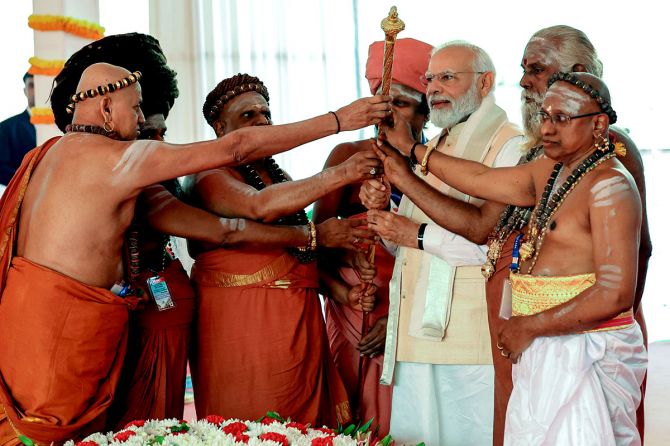
Born into a country that was firmly a democracy, the scepter didn't fascinate me more than it should.
It was an artefact, a relic of humanity's past steeped in royalty. Decades later, as I beheld the fuss India's ruling party led by the prime minister made over the sengol in May 2023 during the inauguration of the new parliament building, I was reminded of King Ottokar's Scepter and my referring the dictionary to find out what a scepter is.
That entire ceremony in Parliament had seemed a surreal travel back in time, except that when one came back to the present, the scepter-wielding characters were very much there.
Either I got stuck in the past or the past got stuck in my present. The time machine's malfunctioning didn't end there.
On January 31, 2024, it was the turn of the President of India -- the country's first citizen and supreme commander of the armed forces -- to walk behind the sengol.
That was hitting below the belt, for while a prime minister straying behind a scepter (despite no precedent in modern, democratic India's Parliament) may be ascribed to his whimsy, the first citizen forced to walk behind a scepter, I felt, belittled the idea of the electorate in a democracy.
What does it speak of how our rulers view us -- that we elect people to have them behave like royalty or that we are an ignorant lot crowding an ancient arena to sit mesmerised by the exotic rituals on display?
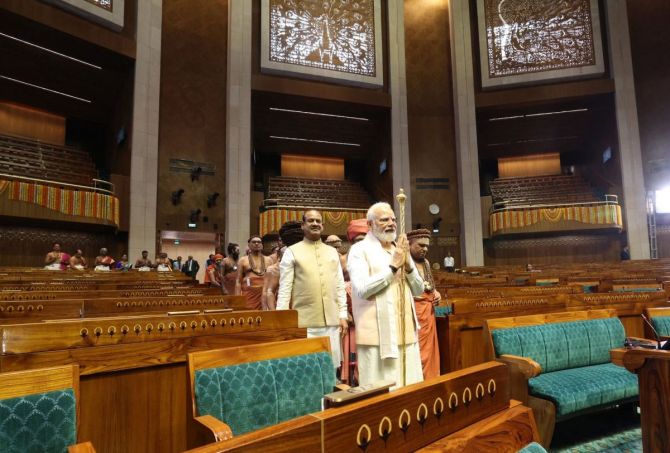
Any which way one looks at it, a scepter is a symbol of power (typically hereditary) held in isolation from the praja or the ruled; it is a symbol of apartness.
On the other hand, a democracy is valued for the promise of bridging such gaps in class.
One casts one's vote not to elect an aloof king or an official who rules by right to authority, but to gain an accessible public representative.
A temple of democracy becomes one when it cleanses itself of princely and feudal symbols and relics.
Indeed, the surrender of vanity is one of the hallmarks of good leadership in a democracy.
India's commitment to democracy, secularism and equality cannot be held hostage by the convenience in propagandist communication, a political party or a prime minister finds in resurrecting symbols from the hoary past.
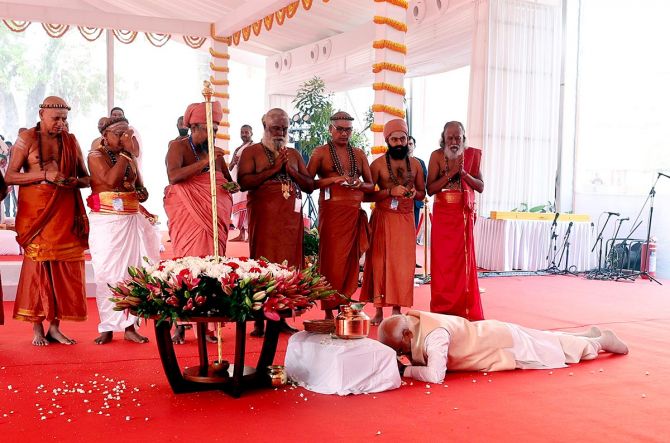
The truth is, there is a whole lot of corrections in public posturing (a return to the ways of democracy) that a new government -- be it an altogether new one or another edition of the National Democratic Alliance -- would have to do in 2024, if India is to stop looking comic book-like.
Self-aggrandisement of the State and people in power have never been as high, as it has been under Narendra Modi.
Ironical as it may seem, we have become a democracy, which needs to have its feet on the ground.
That sengol must revert to where it belongs -- behind a glass case (which is what, Jawaharlal Nehru did to it); and not figure in ceremonies concerning India's democracy.
Shyam G Menon is a freelance journalist based in Mumbai.
Photographs curated by Manisha Kotian/Rediff.com
Feature Presentation: Rajesh Alva/Rediff.com

